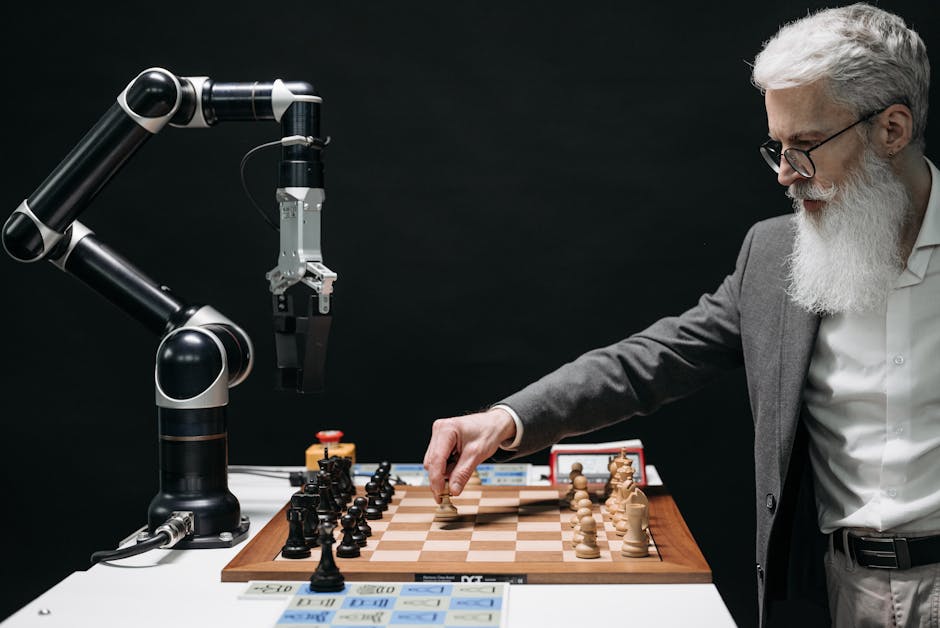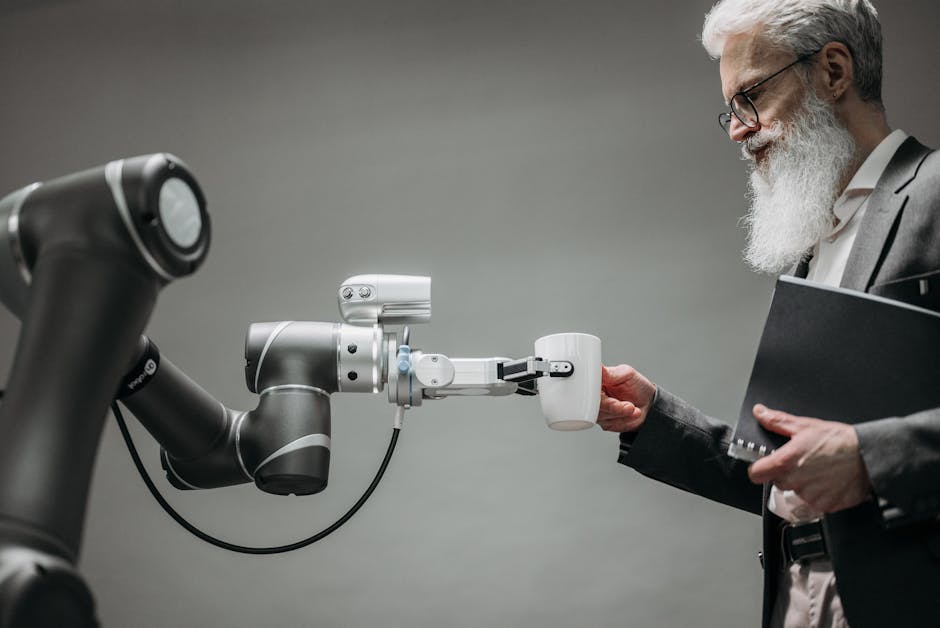AI Powered Automation Transforming Work Processes
In today’s fast-paced and ever-evolving technological landscape, artificial intelligence (AI) powered automation has emerged as a game-changer in various industries. From streamlining repetitive tasks to enhancing decision-making processes, AI has revolutionized the way we work. This article delves into the transformative impact of AI powered automation on work processes, exploring its benefits, challenges, and future potential.
The Rise of AI Powered Automation

The integration of AI in automation processes has been steadily gaining momentum across industries. AI algorithms, machine learning, and natural language processing have enabled machines to perform tasks that previously required human intervention. From predictive analytics to robotic process automation (RPA), AI has redefined how work is done.
One of the key drivers behind the adoption of AI powered automation is the efficiency and accuracy it brings to work processes. By leveraging machine learning algorithms, organizations can automate mundane tasks, freeing up employees to focus on more strategic and creative endeavors. This shift not only enhances productivity but also reduces the margin of error, leading to higher quality outputs.
Enhancing Decision Making with AI

AI powered automation is not just about streamlining processes; it also plays a crucial role in enhancing decision-making capabilities. By analyzing vast amounts of data in real-time, AI systems can provide valuable insights that help organizations make informed decisions. Whether it’s predicting customer behavior or optimizing supply chain operations, AI empowers businesses to stay ahead of the curve.
Moreover, AI powered automation enables organizations to respond swiftly to changing market trends and customer preferences. By leveraging AI-driven analytics, businesses can identify patterns and trends that would have been otherwise overlooked. This proactive approach allows companies to adapt their strategies in real-time, ensuring they remain competitive in dynamic markets.
Automation in Customer Service

AI powered automation has significantly transformed customer service operations. Virtual assistants, chatbots, and AI-powered algorithms have revolutionized the way organizations interact with their customers. These intelligent systems can provide instant responses to customer queries, resolve issues, and even personalize customer experiences based on data analytics.
By automating customer service processes, businesses can improve efficiency, reduce response times, and enhance customer satisfaction. AI systems can handle a large volume of inquiries simultaneously, ensuring that no customer concern goes unaddressed. This level of responsiveness and personalization has become a hallmark of top-tier customer service in the digital age.
AI and Human Collaboration

Contrary to popular belief, AI powered automation is not about replacing humans but rather augmenting their capabilities. The synergy between AI systems and human workers has proven to be incredibly powerful, leading to greater efficiency and innovation. While AI handles repetitive and data-intensive tasks, humans can focus on complex problem-solving, creativity, and emotional intelligence.
This collaborative approach has redefined the concept of work, creating a harmonious balance between automation and human ingenuity. Organizations that embrace this hybrid workforce model are better positioned to leverage the strengths of both AI and human employees, driving innovation and sustainable growth.
Challenges and Controversies in AI Automation
Despite its many benefits, AI powered automation is not without its challenges and controversies. One of the primary concerns surrounding AI is the potential for bias in algorithmic decision-making. If not properly calibrated, AI systems can perpetuate and even exacerbate existing biases, leading to unintended consequences.
Furthermore, the widespread adoption of AI powered automation raises questions about job displacement and the future of work. While automation can lead to job redundancies in certain sectors, it also creates new opportunities in emerging fields. The key lies in reskilling and upskilling the workforce to ensure they are equipped to thrive in the age of AI.
Future Implications of AI Automation
Looking ahead, the future of AI powered automation holds immense promise. As AI technologies continue to advance, we can expect even greater integration of automation in various aspects of work. From autonomous vehicles to predictive maintenance in manufacturing, the applications of AI are boundless.
Moreover, AI powered automation is poised to revolutionize industries such as healthcare, finance, and education. Predictive analytics, personalized medicine, and AI-driven tutoring systems are just a few examples of how AI is reshaping these sectors. The possibilities are endless, and the impact of AI on work processes is likely to be profound.
Common Misconceptions about AI Automation
One common misconception about AI powered automation is that it will lead to a jobless future. While it’s true that some jobs may be automated, new roles and opportunities will emerge as a result of AI integration. Rather than replacing humans, AI is meant to enhance human capabilities and drive innovation.
Another misconception is that AI is infallible and unbiased. In reality, AI systems are only as good as the data they are trained on. It’s essential to continuously monitor and evaluate AI algorithms to ensure they are fair, transparent, and free from bias. Human oversight is crucial in ensuring the ethical use of AI in automation.
Conclusion: Embracing the Future of Work with AI Automation
To wrap things up, AI powered automation is revolutionizing work processes across industries, enhancing efficiency, decision-making, and customer service. By leveraging the capabilities of AI, organizations can unlock new possibilities and drive innovation. While challenges exist, the future implications of AI automation are vast and promising.
As we navigate the evolving landscape of work in the digital age, it’s crucial to embrace AI powered automation as a tool for growth and transformation. By fostering collaboration between humans and machines, we can create a future where work is more meaningful, efficient, and impactful. The time to embrace the potential of AI automation is now.




